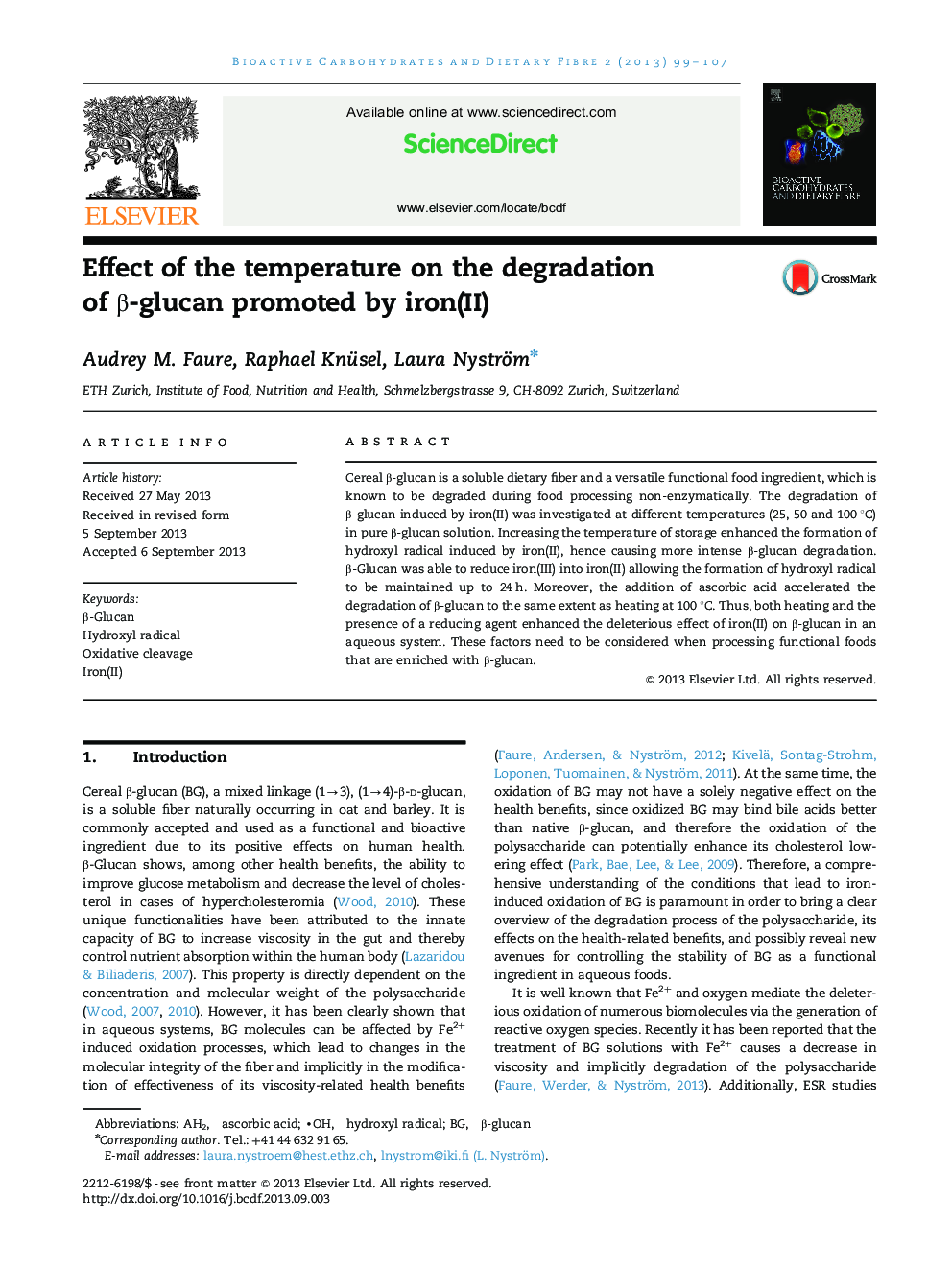| Article ID | Journal | Published Year | Pages | File Type |
|---|---|---|---|---|
| 1412999 | Bioactive Carbohydrates and Dietary Fibre | 2013 | 9 Pages |
•The iron(II)-induced degradation of β-glucan is accelerated with increased temperature.•β-Glucan reduces iron(III) at elevated temperatures.•Ascorbic acid at room temperature causes similar β-glucan degradation as heat treatment.
Cereal β-glucan is a soluble dietary fiber and a versatile functional food ingredient, which is known to be degraded during food processing non-enzymatically. The degradation of β-glucan induced by iron(II) was investigated at different temperatures (25, 50 and 100 °C) in pure β-glucan solution. Increasing the temperature of storage enhanced the formation of hydroxyl radical induced by iron(II), hence causing more intense β-glucan degradation. β-Glucan was able to reduce iron(III) into iron(II) allowing the formation of hydroxyl radical to be maintained up to 24 h. Moreover, the addition of ascorbic acid accelerated the degradation of β-glucan to the same extent as heating at 100 °C. Thus, both heating and the presence of a reducing agent enhanced the deleterious effect of iron(II) on β-glucan in an aqueous system. These factors need to be considered when processing functional foods that are enriched with β-glucan.
Graphical abstractFigure optionsDownload full-size imageDownload as PowerPoint slide
